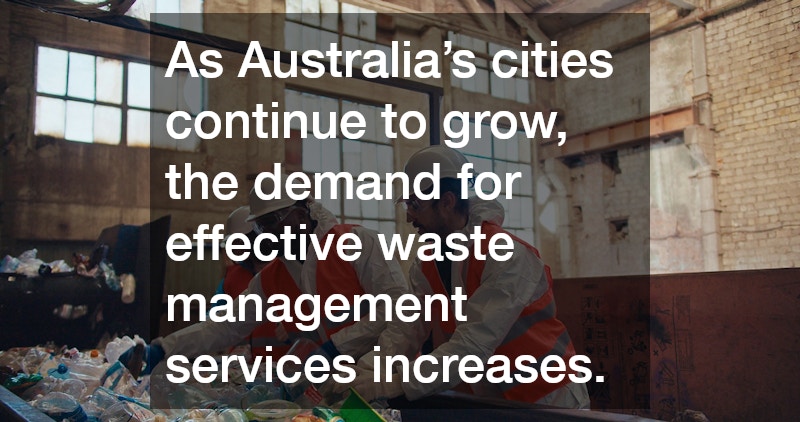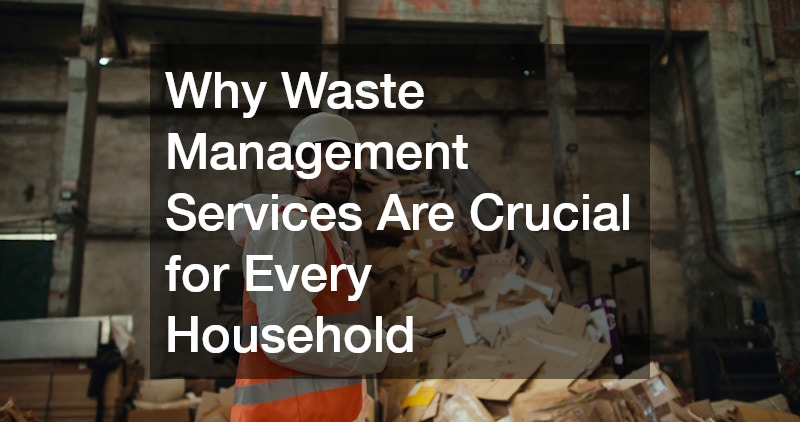In today’s world of growing environmental concerns and urban development, waste management services play a vital role in maintaining clean, safe and sustainable communities. Every household produces waste daily, and without a proper system in place to manage it, the impact on both public health and the environment can be significant.
The Role of Household Waste Management
Waste management services ensure that all types of residential waste are collected, treated and disposed of responsibly. This includes everything from everyday kitchen rubbish to recyclables and green waste. Without these systems, bins would overflow, pests would increase, and communities would face greater risks of disease and pollution. A structured waste collection routine not only keeps neighbourhoods clean but also supports broader environmental goals such as landfill reduction and recycling targets.
Environmental Benefits of Proper Waste Disposal
When rubbish is disposed of correctly, it significantly reduces the chance of harmful chemicals and non-biodegradable materials ending up in soil and waterways. Waste management services are equipped to sort and divert recyclable materials such as paper, glass, plastic and metal away from landfills. This process helps conserve natural resources, reduce greenhouse gas emissions and lower the demand for raw material extraction. By relying on professionals who follow regulated disposal procedures, households can indirectly support environmental preservation and help tackle climate change.
Supporting Community Health and Hygiene
A major benefit of professional waste management services is the improvement of public health. Decomposing organic waste can attract insects, rodents and bacteria, all of which pose a threat to human health if not managed properly. Regular bin collection, responsible waste segregation and the use of appropriate disposal bins reduce the risk of disease and keep shared spaces safe. In densely populated areas, where poor hygiene can spread quickly, the role of waste services becomes even more critical.
Waste Sorting and Recycling Awareness
Waste management companies often take on an educational role in communities by encouraging households to better understand how to sort and dispose of their waste. Clear labelling on bins, local council guidelines and recycling education programs all contribute to higher participation rates in recycling and composting efforts. Households that sort waste correctly make the entire disposal chain more efficient and sustainable. Knowing what goes in each bin—whether it’s recyclables, organics or general waste—can make a real difference.
Efficient Waste Collection Services
Another reason why waste management services are essential is the convenience they provide. Most households would find it difficult, if not impossible, to transport their own rubbish to designated facilities regularly. Scheduled collections managed by councils or private providers ensure that waste is removed on time, without requiring extra effort from residents. In many regions, there are also services for bulky items, green waste and hazardous materials, all handled by trained professionals to ensure safety and compliance.
Managing Household Waste in Emergencies
During emergencies such as floods, storms or bushfires, the volume and type of waste produced can increase rapidly. Fallen branches, damaged furniture and spoiled food all contribute to the load. Waste management services play a crucial role during these times by ramping up collection efforts, coordinating clean-up operations and providing skips or extra bins where needed. Their quick response helps communities recover faster and prevents waste from becoming a health hazard in already vulnerable areas.
Reducing Household Environmental Footprints
Sustainable living starts at home, and waste reduction is one of the simplest ways for families to lower their environmental footprint. By working with waste management services and following their guidelines, households can reduce the amount of rubbish sent to landfills and increase the rate of recycled or composted materials. Small changes, such as reducing single-use plastics or composting food scraps, become more impactful when supported by a reliable collection and disposal system.
Encouraging Responsibility and Long-Term Habits
Using waste services also promotes a culture of responsibility. When households are mindful of what they throw away and how it’s disposed of, it fosters better long-term habits. Children grow up understanding the importance of sorting waste, reducing consumption and protecting the environment. These habits, once formed, can lead to more conscious consumer behaviour and stronger support for environmental policies.
A Key Part of Urban Living
As Australia’s cities continue to grow, the demand for effective waste management services increases. High-density housing, apartment buildings and growing populations make it essential to have consistent, scalable and environmentally sound waste systems in place. Without them, urban living would become unsanitary and unsustainable. Proper waste management supports clean streets, safe public areas and efficient urban infrastructure.
Every household has a role to play in managing waste, and working alongside professional waste management services makes that task achievable. From improving hygiene and convenience to protecting the environment and supporting community health, these services are a fundamental part of modern living. Investing in and adhering to a responsible waste disposal system benefits not just individual households but the entire community and the planet as well.

